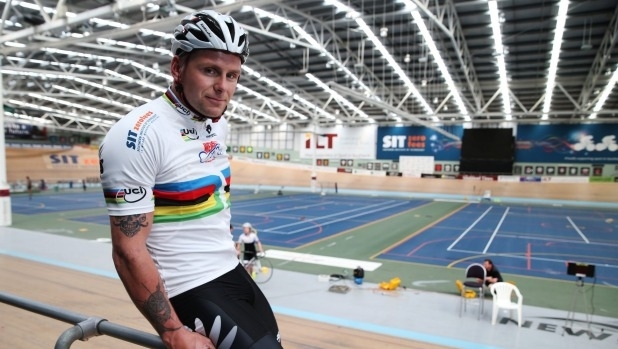The Five Year Cycle
0The last few days have seen the retirement of Eddie Dawkins, one third of our successful men’s sprint cycling trio. For years, Dawkins, Sam Webster and Ethan Mitchell have been near-certainties when it came to medalling at key events, part of a post-Ulmer boom for performance track cycling in this country.
Dawkins is the first major casualty of the Olympic delay, his retirement a major ramification of pushing the Games out by 12 months (at least). It speaks to how intricately planned life as an Olympic athlete is.
Olympians live in four year cycles. With yardstick events like world championships and Commonwealth Games along the way, their lives revolve around qualifying for and competing at the Olympics. Training, peaking, competing, recovery, repeat. All of this, year after year, with an eye on representing their country and competing at the most prestigious event in their sport every four years.
As has been well-documented, the Olympics do not fold easily. The IOC clung on to hope that the event could still run as planned this July-August for numerous reasons, with commercial obligations probably the leading factor. But as the reality of the global public health crisis gripped us all, they too had to bow to common sense, and postpone the Games to a similar time slot next year.
As a result, there will be any number of athletes now wondering how this delay impacts them.
Dawkins’ retirement will leave Webster and Mitchell in the lurch, their Olympic reality now even more different from what they planned for this year. They’ve competed without Dawkins a handful of times in the last 12 months, but they would’ve been assuming they’d have the big engine out on the boards with them again in Tokyo. What does their trio look like now, and how do performance expectations change?
For some, it will be good news. Emerging athletes who may not yet have qualified have another 12 months to push their case. For others, their training and qualification pathways had been severely interrupted by COVID-related closures or postponements, so having more time to hit peak performance will be appreciated. Eliza McCartney, who has been battling injury for the better part of 12 months, will have even more time to get herself strong and competition-fit, hoping to improve on her surprise bronze from four years ago.
For other athletes, however, it might be a bridge too far. Dawkins said as much himself, that his body would’ve been fine for the extra push, but the mental hurdle of maintaining that peak performance mindset for another 12 months was just too much. When you’ve zeroed in on a target so intensely for nearly four years, having the goalposts shift is enough to burst your bubble.
Similarly, for aging athletes, getting the body through another 12 months of gruelling training may not be either appealing or possible. Especially without access to leading performance health providers at the moment – deep tissue massage and ice baths aren’t an essential service, so hard training without the maintenance avenues may not be a viable long-term option.
There may be some athletes in team sports who have qualified a spot, a team or a seat at Tokyo, who are sweating on the loyalty of their sport to keep them in it. Rowing crews qualify a boat, not individual people, and it may come down to sheer loyalty whether those who qualified the boat are the ones who race in Japan. Is it more fair to give the spot to someone who helped qualify it, or to the best performer as we near the new date of the Games? That’s a nervous wait.
And there’s life beyond sport to think about as well. There may be female athletes who planned their family lives around the four-year cycle being completed this August. What role does that or any other external influence play on an athlete’s longevity?
The retirement of Dawkins may or may not trigger similar responses. Now that the ‘first’ is out of the way, it will be interesting to see if any other athletes come to the same realisation – who else may be walking the fine line of wanting to compete, but not wanting to turn a four-year cycle into five?
The motivation required for that is immense, and there’s not even a guarantee that the 2021 version of the 2020 Games will go ahead. Training at the required intensity, with a cloud of the unknown loitering above would chip away at even the most focused athlete – especially now they have the proof that the Olympics can be disrupted. What state will the world be in in 12 months? How realistic will it be for athletes to be at peak performance, to have had full access to their training facilities and programmes, to have attended the requisite events to qualify for the Games? Will large gatherings of people be encouraged in 12 months time? No one knows, least of all athletes. It’s all guesswork at this point.
Dawkins had the benefit and comfort of making his decision with Olympic, Commonwealth and World Championship medals in his trophy cabinet. If you’ve ever seen him compete, you know he’s an all-in, full hearted kind of guy, and you have to admire him for having the honesty and respect for his teammates to not half-ass it for another 12 months.
There will be many athletes, here and around the world, who are having to evaluate their options now, too. For some, a new door has opened. For others, it may be swinging closed.
Follow Heather on Twitter

